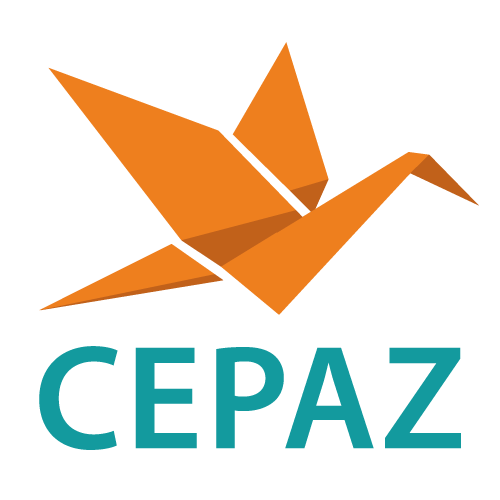Este 15 de agosto, en medio de una ola de represión postelectoral que busca intimidar, silenciar y causar terror en la población, la Asamblea Nacional bajo control oficialista, aprobó la Ley de Fiscalización, Regularización, Actuación y Financiamiento de las Organizaciones No Gubernamentales y Organizaciones Sociales Sin Fines de Lucro, más conocida como la “ley antisociedad”. Esta ley obliga a las organizaciones de la sociedad civil a someterse al registro y al escrutinio gubernamental de sus actividades y fuentes de financiamiento, lo que representa un grave ataque contra el derecho de asociación y la participación en asuntos públicos.
La primera discusión de este proyecto se remonta al año 2023, fecha en la que advertíamos sobre la gravedad de su discusión y aprobación, y aunque la normativa se mantuvo engavetada durante todo el año 2023, durante ese periodo fue utilizada constantemente como un instrumento para amenazar y atemorizar a las organizaciones de la sociedad civil. Así pues, desde el Centro de Justicia y Paz (Cepaz) no dejamos de advertir que siendo el 2024 un año electoral, nos encontrábamos ante una amenaza latente de aprobación de esta normativa y por ello alertamos sobre la posibilidad de que este año se llevara a cabo la estocada final en el cierre del espacio cívico nacional, pues la labor de promoción y defensa de la participación ciudadana libre y plural, como elemento fundamental para vivir en democracia; y la labor de defensa, documentación y promoción de los derechos ciudadanos, incomoda en el objetivo del gobierno de perpetuarse en el poder.
Así pues, la aprobación de esta ley se produjo apenas 48 horas después de que el Alto Comisionado de las Naciones Unidas para los Derechos Humanos, Volker Türk, exhortara a las autoridades venezolanas a no adoptar leyes que socaven el espacio cívico y democrático en el país. Sin embargo, el gobierno venezolano decidió avanzar con una normativa punitiva que va en contra de los estándares internacionales sobre la libertad de asociación.
Una Ley para silenciar y controlar
La ley antisociedad no es una mera normativa más, es una herramienta diseñada para desmantelar el espacio cívico en Venezuela, comprometiendo la existencia, continuidad y funcionamiento de, entre otras, las organizaciones humanitarias y de derechos humanos.
En un contexto donde el gobierno ha recurrido a los mecanismos más duros de represión, incluyendo denuncias de detenciones arbitrarias, desapariciones forzadas, torturas, amenazas e incluso asesinatos, esta ley llega como una forma de controlar y silenciar a las organizaciones de la sociedad civil. Estas organizaciones han jugado un papel crucial en la documentación y denuncia de violaciones de derechos humanos, así como en el acompañamiento de las víctimas y sus familiares, quienes se encuentran en un estado de total desprotección ante un sistema judicial cooptado por el poder ejecutivo.
El ataque contra las organizaciones de la sociedad civil no es nuevo. Desde el pasado el gobierno ha acusado a las organizaciones de ser fachadas para actividades terroristas y las ha vinculado con actividades políticas de la oposición. Sin embargo, esta ley va más allá, es una criminalización grave al acceso a fondos de cooperación internacional, obliga a las organizaciones a registrarse ante los organismos del Estado y a notificar sobre las donaciones y financiamientos recibidos, ignorando la existencia de organizaciones de hecho y creando un ambiente de constante vigilancia y amenaza.
Un instrumento punitivo y arbitrario
La ley antisociedad establece sanciones severas, incluyendo la suspensión preventiva de actividades, multas que pueden alcanzar los mil dólares, la expulsión de personas extranjeras que formen parte de las organizaciones, y hasta la disolución de las mismas.
Lo más preocupante es la inclusión de términos vagos y ambiguos, como las prohibiciones en torno a la promoción del “fascismo, la intolerancia, el odio o cualquier acto que constituye incitación a la discriminación y la violencia”, que dejan un amplio margen para la discrecionalidad gubernamental. Estos términos y actos, aunque en efecto deben ser condenados, se han instrumentalizado en el pasado para justificar sanciones desproporcionadas y arbitrarias, que podrían resultar en la ilegalización masiva de organizaciones de la sociedad civil, creando un espacio cívico que se ajuste a los intereses del gobierno y a su permanencia indefinida en el poder.
Llamado a la comunidad internacional
Ante el preocupante panorama en Venezuela, es imperativo que la comunidad internacional tome una postura firme y decidida en defensa de las organizaciones de la sociedad civil y las garantías de un espacio cívico seguro, plural y libre. Estas organizaciones son pilares fundamentales en la promoción y defensa de los derechos humanos, desempeñando un papel crucial en la documentación, denuncia y asistencia a miles de víctimas de graves violaciones de derechos humanos en el país.
La aprobación de leyes represivas que buscan silenciar y desarticular a estas organizaciones constituye un ataque directo contra los principios democráticos y los derechos fundamentales que la comunidad internacional se ha comprometido a proteger, por ello, la represión y el control absoluto sobre la sociedad civil no deben ser tolerados.
In the strongest context of repression, the Anti-society Law is approved in Venezuela
This August 15, in the midst of a wave of post-electoral repression aimed at intimidating, silencing and terrorizing the population, the National Assembly, under pro-government control, approved the Law for the Control, Regularization, Performance and Financing of Non-Governmental Organizations and Non-Profit Social Organizations, better known as the “anti-society law”. This law obliges civil society organizations to submit to registration and governmental scrutiny of their activities and sources of financing, which represents a serious attack against the right of association and participation in public affairs.
The first discussion of this project dates back to 2023, when we warned about the seriousness of its discussion and approval, and although the regulation remained shelved throughout 2023, during that period it was constantly used as an instrument to threaten and frighten civil society organizations. Thus, from the Center for Justice and Peace (Cepaz) we did not fail to warn that being 2024 an election year, we were facing a latent threat of approval of this regulation and therefore we warned about the possibility that this year would be carried out the final blow in the closure of the national civic space, because the work of promotion and defense of free and plural citizen participation, as a fundamental element to live in democracy; and the work of defense, documentation and promotion of citizen rights, uncomfortable in the government’s goal of perpetuating itself in power.
Thus, the approval of this law came barely 48 hours after the United Nations High Commissioner for Human Rights, Volker Türk, urged the Venezuelan authorities not to adopt laws that undermine the civic and democratic space in the country. However, the Venezuelan government decided to move forward with punitive legislation that goes against international standards on freedom of association.
A law to silence and control
The anti-society law is not just another regulation, it is a tool designed to dismantle the civic space in Venezuela, compromising the existence, continuity and functioning of, among others, humanitarian and human rights organizations.
In a context where the government has resorted to the harshest mechanisms of repression, including reports of arbitrary detentions, forced disappearances, torture, threats and even assassinations, this law comes as a way to control and silence civil society organizations. These organizations have played a crucial role in documenting and denouncing human rights violations, as well as in accompanying victims and their families, who find themselves in a state of total lack of protection in the face of a judicial system co-opted by the executive branch.
The attack against civil society organizations is not new. Since the past, the government has accused the organizations of being fronts for terrorist activities and has linked them to political activities of the opposition. However, this law goes further, it is a serious criminalization of access to international cooperation funds, obliging organizations to register with state agencies and to report on donations and funding received, ignoring the existence of de facto organizations and creating an environment of constant surveillance and threat.
A punitive and arbitrary instrument
The anti-society law establishes severe sanctions, including the preventive suspension of activities, fines that can reach up to one thousand dollars, the expulsion of foreign persons who are part of the organizations, and even the dissolution of the organizations.
Most troubling is the inclusion of vague and ambiguous terms, such as prohibitions around the promotion of “fascism, intolerance, hatred or any act that constitutes incitement to discrimination and violence,” which leave ample room for government discretion. These terms and acts, while indeed to be condemned, have been instrumentalized in the past to justify disproportionate and arbitrary sanctions, which could result in the mass illegalization of civil society organizations, creating a civic space that suits the interests of the government and its indefinite stay in power.
Call to the international community
Given the worrying panorama in Venezuela, it is imperative that the international community take a firm and decisive stance in defense of civil society organizations and the guarantees of a safe, plural and free civic space. These organizations are fundamental pillars in the promotion and defense of human rights, playing a crucial role in documenting, denouncing and assisting thousands of victims of serious human rights violations in the country.
The approval of repressive laws that seek to silence and dismantle these organizations constitutes a direct attack against the democratic principles and fundamental rights that the international community has committed to protect, therefore, repression and absolute control over civil society should not be tolerated.
Foto/Photo: Reuters





